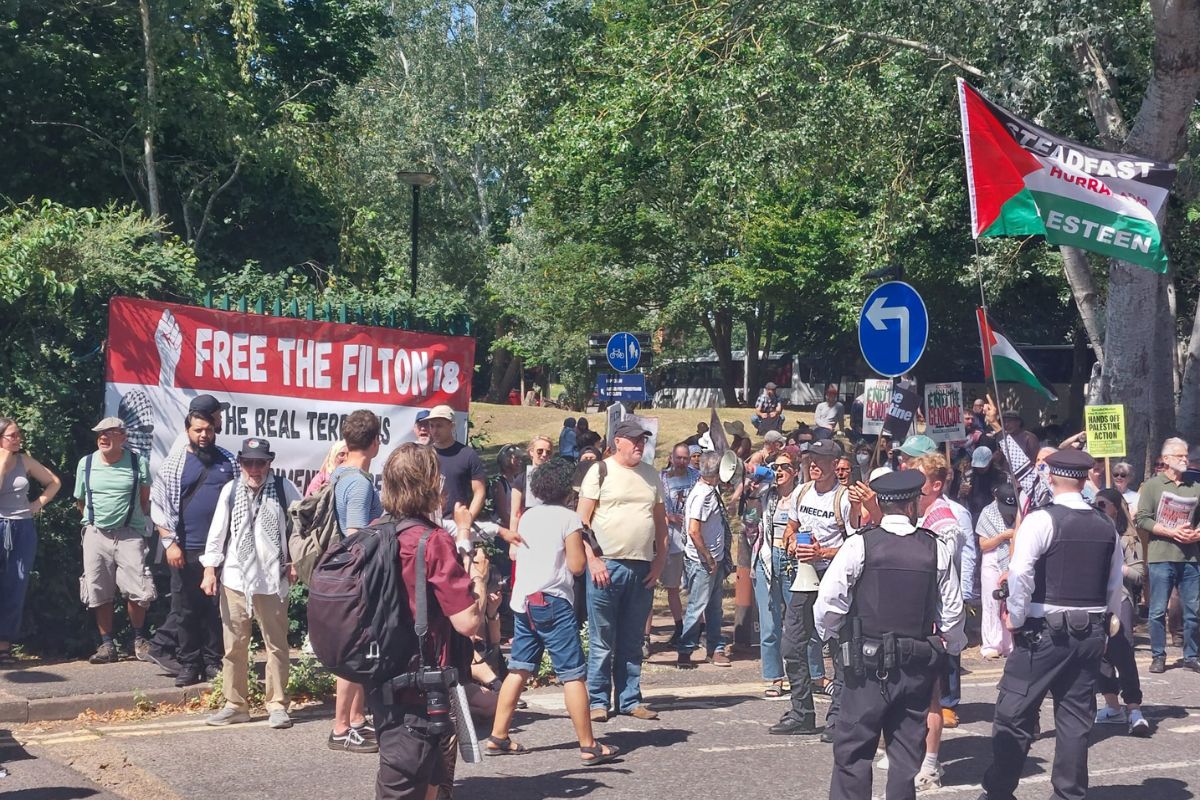Elections can provide us with a snapshot of the
political mood of society at a given moment. Yet if we restrict
ourselves to who won and who lost they can teach us very little. For
example, if one acknowledges simply the headline result of the recent
US elections, the only conclusion that can be drawn is that George Bush
won and his policies are popular. This is the line we read generally in
the press. Yet the US elections tell us a great deal about the present
and future state of the US. They reveal a society more divided than at
any other time in recent history; they foreshadow not years of social
peace, but a new period of turmoil and instability. The US elections
continue the trend we described earlier in the year in relation to the
European elections. Both illustrate a sharp polarisation of society.
The
‘present’ elections looming are those promised in Iraq for the end of
January. Having ‘completed’ their barbaric assault on Fallujah leaving
thousands of dead and wounded in their wake, the imperialists are not
one step nearer peace and stability. Any elections held in the ruins of
Iraq under foreign military occupation will be a farce.
An
election will also be taking place here in the near future, and Labour
remains odds on to win. Does this mean a general acceptance of Blair to
be followed by years of stability? Far from it. In the first place
although a Labour victory is the most likely outcome of that poll, it
is far from guaranteed. A great deal can happen in the next few months.
The
impact of the ongoing slaughter in Iraq, and the lack of any electoral
alternative, will see turnout continue to be historically low. Workers
disillusioned by Blair and co. will not vote for any of the various
sectarian fringe groups but will generally stay at home.
The
Tories have recovered some ground but probably not enough to win. The
Liberals’ pipedreams of overtaking them have turned to dust. As for the
‘success’ of UKIP in the Euro elections, there will be no repeat in a
general election. They, like the defenders of the hunt, the Countryside
Alliance etc. are a nasty foretaste of future reactionary groupings
inside and outside the Tory Party.
Labour third term
The
most likely outcome is a Labour third term. International events will
have a big impact on that election, but so will events at home. Under
the cover of the ‘fight against terrorism’, Blair and co. intend to
introduce identity cards, create a British ‘FBI’, introduce trials
without juries – these are not the plans of a ruling class confident of
years of social peace and stability to come.
Meanwhile,
Blair and Brown continue to believe their own myth that they have
abolished slumps in the economy. They are in for a rude awakening. The
insoluble contradictions of capitalism have not gone away. At the root
of the failing economy is the same old crisis of overproduction and
overcapacity to produce. With no market for their goods at home or
abroad the capitalists do not invest in production, instead they
squander their profits on acquisitions, mergers, and speculation.
Investment has been cut by 40% in the last five years. While the
decimation of manufacturing industry has continued apace, with 750,000
jobs destroyed since Blair came to office, Britain does lead the world
in the league table of credit. At more than £1 billion, British
indebtedness is the same size as its GDP. Increasing interest rates was
meant to bring this under control, and cool down the overheated housing
market. The problem with bubbles is that sticking pins in them is far
more likely to make them burst than gently deflate. Already house
prices have begun to fall, by 1.1 percent in October according to the
Halifax. Five interest rate rises have raised mortgage payments as a
percentage of income from 14 to 19 percent. According to Nationwide new
mortgage approvals were 30 percent lower in September than a year ago.
First
time buyers can no longer afford to climb on to the property ladder.
Young workers and their families don’t earn enough to buy, so those
wanting to sell to them can’t sell; they in turn can’t move up the
ladder and so on. So prices stop rising and begin to fall. House prices
are so overinflated they could fall by as much as 20 or even 30 percent
according to Steve Nickell of the Bank of England’s Monetary Policy
Committee.
Interest
rate rises have meant falling investment and production and an increase
in credit to pay for credit. This is unsustainable. As Marx long ago
pointed out credit takes the market beyond its limits, using up
tomorrow’s money today. Yet tomorrow always comes around.
Disposable
income will fall next year for the first time since 1998. Already car
sales are at their lowest level since 1992 according to the Society of
Motor Manufacturers and Traders. John Lewis and Marks and Spencer have
recently announced a drop in sales. Only credit and the consumer
spending it fuelled were keeping the economy afloat. Now there is
little left to keep it from sinking. The economy is grinding to a halt.
A
Labour victory in 2005 will not be a precursor to years of social
peace. Economically, politically, socially the conditions are being
prepared for almighty battles. This is the spectre that will be
haunting Blair this holiday season.
Of
Scrooge’s Christmas Eve visitations, the ghost of things to come was by
far the most disturbing. It forced old Ebeneezer to change his ways.
The vision of the future offered to us by capitalism is just such a
nightmare of war, hunger and misery. For millions this is already the
reality. Another future is possible, but only if we fight for it. Join
us in the struggle for a socialist world.






